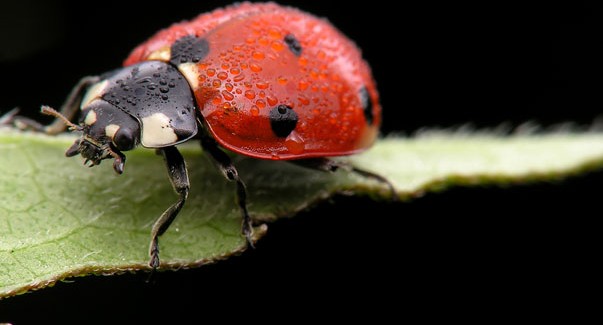Your cart is empty
Fighting Bugs With Bugs
Keep in mind the old saying “Fight fire with fire” when it comes to dealing with pest infestation in and around your home. Use bugs to fight bugs.

Pests usually attack plants that are already in various states of distress. So, the first defense against infestation is to use organic methods to keep your plants healthy. However, sometimes if you do see pests in small to moderate numbers, it could just be nature’s way of thinning things out and you might want to consider allowing the pests to die on their own.
If you think there are too many aphids, ants, cockroaches or mosquitoes, there are some predatory insects that find those pests pretty tasty. They’re known as beneficial insects and can do your garden and your health some good.
I spoke with Sheri Frey who runs Arbico, a company that sells beneficial insects and sends them to homeowners through the mail, and she gave me a list of her favorite beneficial bugs and the pests they fight.
Fly Parasites: These little guys eat flies when they’re in their “maggot stage.” If you release fly parasites at night, they’ll burrow for a location to lay their eggs and the bodies of fly maggots will become the unknowing host to the eggs. When the eggs hatch, the emerging pupae will devour the maggot and your problem will be solved.
Green Lacewings: These bugs will actually kill a variety of other bugs, like aphids, mealy bugs, spider mites, leafhopper nymphs, caterpillar eggs, scales, thrips and white flies.
Ladybugs: These beauties might be small, but they can be awfully helpful. They eat aphids, cinch bugs, asparagus beetle larvae, thrips, alfalfa weevils, bean thrips, grape root worms, Colorado potato beetle larvae, white flies, mites and other soft-bodied insects and eggs.
Nematodes: Though they’re tiny, these non-segmented worms will burrow into the ground and eat just about any young insects before they develop into adults.
Praying Mantid: They might look a little spacy, but these bugs can really give your garden a helping hand. They’ll eat almost all insects, mites and eggs of garden pests.
Trichogramma Wasp: This little guy will be happy to rid your garden of burrowers, bollworms, army worms and cut worms. Like the fly parasite, trichogramma feeds on the larvae of its prey.
If you would rather not release bugs into your garden, try some of these organic methods for ridding your plants of pests:
Boric Acid: Acting as stomach poison when mixed with sugar and other bait, this organic product kills cockroaches and several other pests.
Compost: Terribly beneficial to the soil, compost will stimulate the beneficial microbiotic activity in the soil and improves pest and disease resistance.
Diatomaceous Earth: If you’ve got ants, bed bugs, box elder bugs, carpet beetles, centipedes, crickets, cockroaches, earwigs, fleas, grasshoppers, millipedes, slugs or silverfish, spread around a little (and I mean a little) diatomaceous earth and your problem should be solved.

